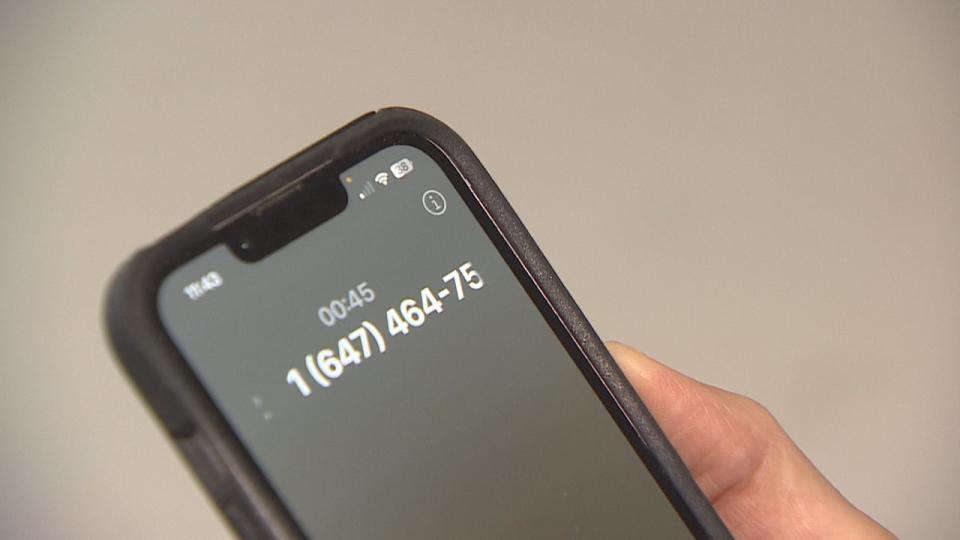Poor cell coverage could be dangerous, says Charlottetown woman
Sarah Blanchard-Eng still cries at the memory of trying to reach 911 from her home last summer when her toddler was choking on his dinner.
"I'm completely terrified of it happening again," Blanchard-Eng said.
"I can still cry just thinking about it. Even just hearing a small cough from my son now when he eats."
Blanchard-Eng lives in the Brighton neighbourhood of Charlottetown, west of Spring Park Road and south of Colonel Gray Drive. Cellular coverage has been a problem since she moved there two years ago.
I called 911 but my phone kept dropping the call — Sarah Blanchard-Eng
Last August she was home alone with her two toddlers, her 15-month-old son and three-year-old daughter, feeding them dinner.
"My son actually choked on a piece of lasagna. I just took him out of his high chair as fast as I could. Once he started to gag again and spit up, he choked again on his own vomit," she said.
"He was only partially breathing. I called 911 but my phone kept dropping the call. It just kept saying 'call failed.' So I was running outside in my yard, completely covered in vomit, my son trying, gasping, to be able to cry and finally I found a spot. 911 actually called me back. A paramedic came and did have to suction out my son's nose and throat."
Following that near tragedy, she and her husband now have a landline in their home, exclusively for use in the event of another emergency. It's not just about their children. Her husband is a doctor and is often home on-call, needing to be ready to take a call from the hospital.
A lot of effort, and no answers
Getting a landline is not the first solution they've tried.
First they thought it might be an issue with their phones. They purchased the newest models available, at the same time locking themselves into new contracts with Bell.
When that didn't help, they upgraded their Wi-Fi. Bell suggested enabling Wi-Fi calling on their phones, but the setting never sticks on her phone, said Blanchard-Eng. Earlier this week she was instructed to restore her phone to factory settings. It still didn't work.

With more people moving into the city the problem is getting worse, she said. And with the arrival of tourists in the summer it grows worse still.
"I'm kind of shocked that I live in the capital of a province and I can't even use my cellphone in the summertime," Blanchard-Eng said.
"I don't think Bell really cares."
All of her neighbours complain about the problem, said Blanchard-Eng.
While some providers seem better than others, she said, none of them are very good.
Addressing 'increasing demands'
In an email to CBC News, Bell acknowledged that it has been struggling to keep up with network demands due to population growth and increased usage, in particular during peak tourism periods.
"We are engaged with the provincial government and the [Canadian Telecommunications Association] to address these increasing demands and are actively upgrading our equipment," the company said.
"We are also working to build a new cell tower on Mount Edward Road which is projected to be operational by the end of year."
The P.E.I. government says it is aware of weak cell service in both rural and urban areas of the Island.
"The province continues to work with cell service providers to improve service for government offices, which in turn, we expect will also improve service for residents," a spokesperson said in an emailed statement.
The government will engage a consultant this summer to complete a provincewide cellular service gap analysis, it said.
Also in an emailed statement, the Canadian Telecommunications Association said cell phone reception quality is an important issue for its members.
Member companies are investing in upgrading cell sites to add capacity, it said, and those investments will continue in the future.

 Yahoo News
Yahoo News 
